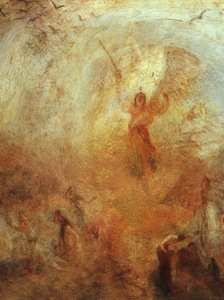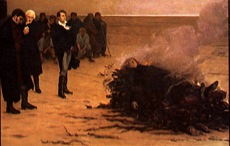

EnGL 547: British Romanticism



Overview:
Romanticism and History

The nineteenth century has often been dubbed the ‘age of history’. We will take that designation seriously by paying attention to the ways the Romantics at once engage with and turn away from historical events. We will also discuss the predominant critical maneuvers of Romantic scholarship over the last three decades, particularly the rise of New Historicism, Cultural Materialism, and Cultural Studies. How exactly has Romantic scholarship been transformed because of these recent critical trends?
The course therefore organizes its material by date rather than by author and we will spend a good amount of time thinking about what exactly is happening in the world surrounding the Romantics.




Course Policies

The course grade will be based on four major contributions:
Participation 40%. I believe that dialogue is the best path to knowledge and I hope to spend a good portion of our three-hour marathon classes discussing ideas and issues with all of you. To that end, I expect each student to have the readings for any given class not only read but ready, which is to say that you should be prepared to discuss issues and offer interpretations and close readings of the material. Remember that I am assigning a week’s worth of readings for each class, so you should never leave the material to the last day or you will be overwhelmed. Each student will also be responsible for leading discussion one time over the semester about his/her major assignment.
Chronology 10%. By October 1, you should submit a chronology of the date that interests you.
Prospectus 10%. On October 17, I will expect you to hand in a polished prospectus for the final paper, accompanied by a 2- or 3-page annotated bibliography (10 items minimum, with no more than one of your ten coming from course readings). The prospectus should be a two-to-three-page, double-spaced paper proposal, the sort of thing you might be asked to submit to a conference. The accompanying bibliography should describe the reason you are including each work in the bibliography (i.e. how it contributes to or contests your proposed argument): two to four sentences for each entry. In order to complete the bibliography, you will have had to complete a good amount of research by October 17.
Paper 40%. You will hand in the final version of the paper on Friday, December 7. It is imperative that you respect this date so that I have time to give you full comments by the following week. Of course, I will be more than happy to accept papers handed in before this date. Essays can be in one of two lengths: I) 12-15 pages, i.e. conference length. II) 20-25 pages, i.e. journal length. If you choose the longer paper length, please have a journal in mind and let me know, in a cover letter, where you are thinking of submitting the piece
Presentations

October 3: Hirofumi Kaji on Coleridge
October 17: Martina Jauch on Byron’s Manfred
October 24: Ken Crowell on Percy Shelley
November 7: Nancee Reeves on Austen
Carolina Andrade on Austen
November 14: James Gonzales-Meisler on John Clare
Adam Watkins on Byron
November 28: Jim Young on Scott’s Ivanhoe
December 5: Sarah Lerch on Coleridge
Chea Parton on Keats

